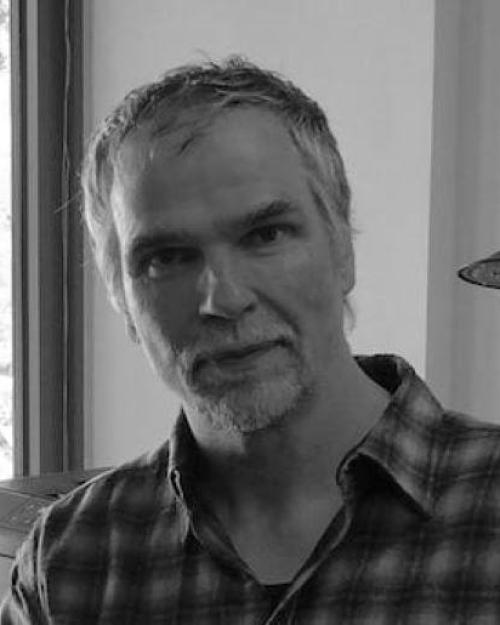After two successful books on misogyny and gender politics, Associate Professor Kate Manne of the Sage School of Philosophy is embarking on a new project: analyzing fatphobia. In her forthcoming book, Unshrinking: How to Face Fatphobia, one of the central concepts Manne explores is what she has termed “body reflexivity.” “That is the idea that your body is for you, my body is for me, and so on and so forth, mutatis mutandis,” says Manne, “For anyone who has a body, their body is for them.”
This ethical principle has far-reaching implications, and it is one of the bases for Manne’s criticism of social attitudes toward bodily appearance. In particular, Manne takes issue with diet culture, which she understands to be “the pushing of particular diets on people, and the surrounding ideology that they are healthier than eating in a way that is more normal, natural, or intuitive.” To Manne, diet culture is chillingly evocative of “gaslighting,” a term referring to the way in which people are made to question their own experiences and doubt their own sanity. “To me, it’s very redolent of gaslighting,” she says, “and I think part of the reason why people keep dieting, even though we know by now that diets don’t work, is this gaslighting phenomenon, including the moral aspect to it that makes people feel guilty or ashamed, as opposed to crazy, for not doing something that they know deep down isn’t going to work for them.”
“I think this is part and parcel of what I see as a very prevalent form of intellectual bias against people living in larger bodies,” Manne says, “Despite the fact that I think most people would agree that there is no real relationship between the size of a person’s body and the size of their mind or their intellect, there’s nonetheless often a prevalent sense that fatter people are stupid, because how else could they have let their bodies get this way?” Manne argues that this “betrays an assumption that fat people are both oblivious and not familiar with the received wisdom on things like nutrition and exercise.” However, the fact is that such assumptions are flawed, and larger people tend to be quite familiar with the ineffective weight-loss programs that are touted to them. “People just come in different shapes and sizes,” Manne emphasizes, “and I think often larger people are in a good position to know that from their own experience. People are a diverse lot in many ways, including size.”
According to Manne, this type of gaslighting can be both immoral and dangerous, since she views hunger as a moral imperative that comes from the body itself, meaning that our sensations of hunger possess moral authority. “Often diet culture teaches us to see hunger as a kind of mere inconvenience,” she argues, “and often it doesn’t even have a very good, vivid sense of how much food people actually do need to sustain themselves adequately.” Manne believes that as a result of this, dieters are made to believe that “hunger is something that we should learn to ignore, and that many people actually come to hate in themselves when they’re trying to shrink their bodies down to a size that they won’t naturally be.” This creates a mindset in which “someone who is privileged enough to have ready access to food can be in a way taught or even gaslit to ignore in themselves because of this sense that it is bad or even shameful to indulge hunger, rather than it actually being the body’s way of telling you that you are under a certain kind of obligation to yourself to nourish yourself.”
Although the study of fatphobia represents a new focus for Manne, her work in this area draws upon many themes that are present in her other writings. In particular, the idea of bodily imperatives is a core feature of her metaethics. Says Manne, “I think I was tempted to try to use my notion about bodily imperatives (note that hunger is one such) to say that there’s something really morally harmful about diet culture telling us to ignore these bodily imperatives, which have a real moral significance and tell us in no uncertain terms to eat.”
Manne’s defense of the body’s moral importance feels especially prescient in today’s political environment. Manne has long been vocal in the fight for reproductive justice, and she has doubled down on her messaging following the Dobbs v. Jackson Women’s Health Organization ruling. Manne recently launched a newsletter called More to Hate, which she uses as a platform to discuss, among other issues, reproductive rights. “Even though I’ve been writing about these ideas for a long time, and I’ve been seriously writing about reproductive justice in this country since 2016, I felt that it was a good time to raise the alarm bells about these issues again,” says Manne, “Your body is for you and you have bodily autonomy in controlling what happens to it. I think that is one of the ideas that I find most morally powerful and plausible that continues to be denied in America today in the wake of the Dobbs decision.”
However, despite the dire situation in which we find ourselves, Manne still has hope that we can build a better future. “We’re seeing, I think, some movement at the both national and state level reflecting on people’s growing unease with what is actually happening to pregnant people’s bodies in the wake of Dobbs,” she says, “I would like to think that we can turn this thing around, but it’s going to take an enormous groundswell of political activism and grassroots effort to overcome.”




